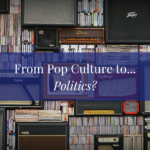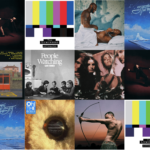Let’s chat about Chappell Roan and why well-meaning celebrities can never win.

At the Grammy’s a few nights ago, Chappell Roan took to the stage to claim her Best New Artist Grammy. She used her few precious minutes to speak about the vulnerability of working artists and pressed the executives in the room to better protect smaller artists through healthcare and livable wages. It was a poignant and simple speech with a clear message, and yet it wasn’t enough. Because here’s the thing: celebrity activism will never be enough.
Celebrity activism feels hollow because we do not see celebrities as complex individuals who have had lives before the limelight. It feels hollow because we see celebrities as wealthy and powerful (probably accurate most of the time). It can be hard to imagine that someone who is living the dream cares deeply about the Amazon Rainforest. And it is irritating to see wealthy people plead with ‘ordinary’ people with modest incomes to give their money to charity. But the bitter taste of celebrity canvassing is not at play here, so what is the problem with Chappell’s statements?
She chose the wrong target.
Chappell seems to be getting heat because she proposed that record companies should provide healthcare to their artists, rather than advocating for universal healthcare. Instead of celebrating a ballsy move by a young artist in calling out record labels, people online are chastising Chappell for not advocating for bigger systemic change. I won’t get into the details of this specific case, but I have to ask whether people think it’s more likely that record labels will provide some form of healthcare to their artists or the United States government will provide universal healthcare? I am all for systemic change, but I’d be betting on record labels achieving this first and with less public debate and outrage in the process.
The Superficiality of Celebrity Culture
It is hard to empathize with people who make a lot of money and are afforded opportunities that many of us can only dream of. However, it does seem like a frustrating situation to be in where you will always be seen as unrelatable, preachy, and/or uneducated when speaking on social issues.
Whether they like it or not, celebrities will always be viewed as superficial people. There are few public figures that get to escape this bind, usually authors or “edutainers” (think Neil deGrasse Tyson). Musicians and actors going to award shows, wearing designer clothes, and having their faces plastered across all types of media will never escape the stereotypes and the preconceived notions in peoples’ heads. Just look at any conversations online about paparazzi and you’ll recognize how dehumanized celebrities are to justify the predatory actions. The thing is, you can be endearing and well-liked. You can do numerous ad campaigns. You can release great music and star in box office hits. Just don’t speak out.
Can celebrity activism ever work?
I remember being in high school when the word ‘slacktivism’ came into the popular media vernacular. It was used as a way to ridicule people for speaking about issues on social media rather than doing something tangible about it. I have complicated feelings about the term, as I do think that social media activism has dampened physical community building and activism, however I think education is an important part of activism which can be done effectively online. But I do think the critique stands, especially for celebrities who by appearances do not do more than repost news stories or infographics. I think if you have the resources to do more, you should. But how do we actually know they aren’t doing more?
When a celebrity donates publicly to charity they will be criticized for doing it for PR or criticized that they’ve chosen the wrong cause, the wrong charity, the wrong location etc. If a celebrity doesn’t publicize their donations, they are assumed to be selfish and vain. When a celebrity speaks on an issue, they are asked why they have the authority to speak on it or why they speak on this issue and not others. But if they celebrity says nothing, we assume them to be complicit or apathetic. When a celebrity endorses a candidate we ask why they are speaking on politics. But if a celebrity doesn’t endorse a candidate we blame the election results on them. It seems there’s a bit of a catch-22 when it comes to having a following.
Of course, everyone is held to these standards, somewhat.
I really do hate white knighting for celebrities here. And don’t get me wrong, celebrity activism can definitely be annoying, disingenuous, and at times dangerous. There is a lot of valid criticism about pop and celebrity culture and the structures of our entertainment industries that I think should be focused on for public debate instead. But it kills me to see people demanding perfection from celebrities as if money has granted them infinite wisdom and grace and they are choosing not to access it. Because the fictional standard we hold people to end up being the measuring sticks for ourselves and our loved ones.
There is no way to be a perfect ally or activist. Donating time and money, reaching out to your representatives, or having difficult conversations with people in your community are all important aspects of political and social action. Everyone needs to do what they can. I don’t think we need to put Chappell Roan on a pedestal for every political statement she makes, but we certainly don’t need to rake her over the coals because she didn’t do the ‘ideal action’. Let’s hold each other accountable, but seriously, we don’t need to start up the discourse machine every time a celebrity makes a statement.


